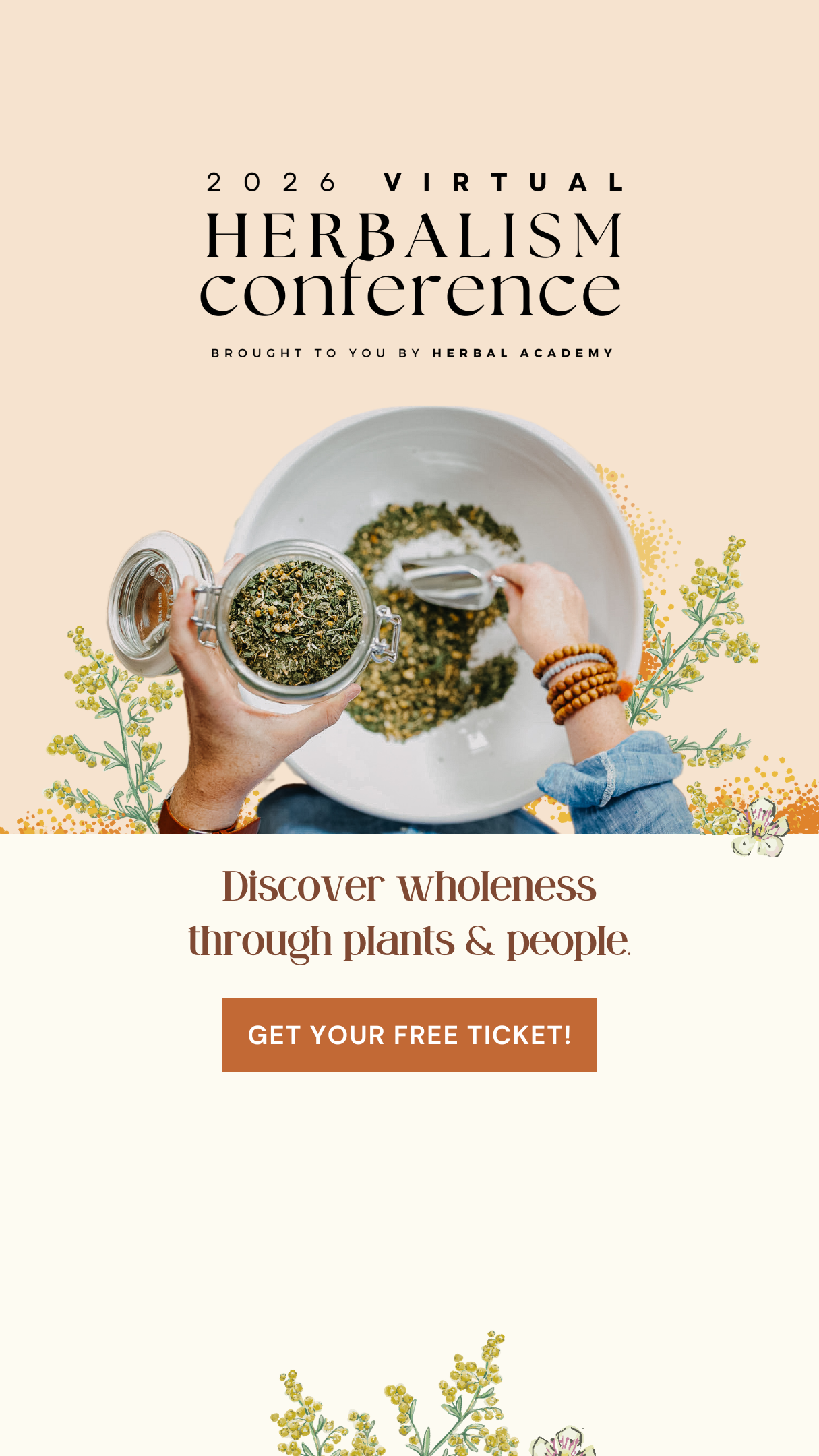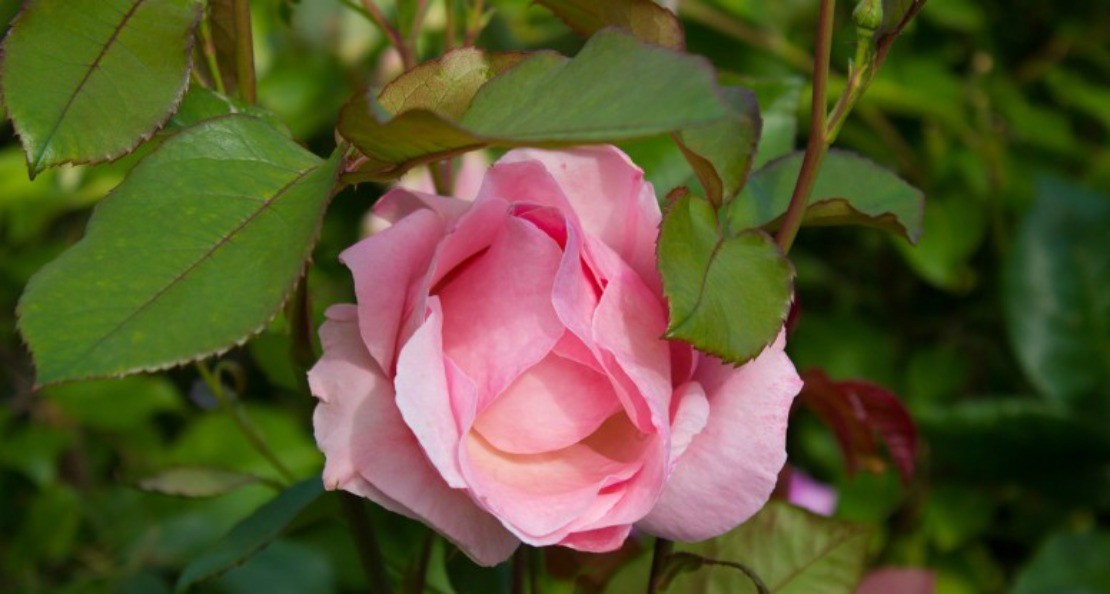
Cooling Down with Summer Rose
In Traditional Chinese Medicine, summer is the season of yang and is associated with the fire element, the Heart, and Small intestine. Energy peaks and it is the time of growth, light, and abundance. Summer is the season of joy and for most of us, it is a more relaxed and fun time of year.
August is typically the hottest summer month, so our goal this month is to keep the body cool. Summer heat can be particularly brutal for menopausal women experiencing hot flashes. Excessive heat creates an imbalanced Heart which will impact energy levels and emotions. Summer buzzwords should be cooling, calming, and clearing.
We should always try to eat seasonally and for summer that means cooling and hydrating foods. Chew slowly, savor your meal, and eat without distraction.
Some examples of cooling foods include:
- Watermelon
- Cucumbers
- Peaches
- Strawberries
- Apricots
- Lemon
- Broccoli
- Corn
- Spinach
- Salads
- Fish
- Duck
- Mint
- Cilantro
Shopping at your local farmer’s market makes it much easier to eat by season. Everything available is not only seasonal but also very fresh.
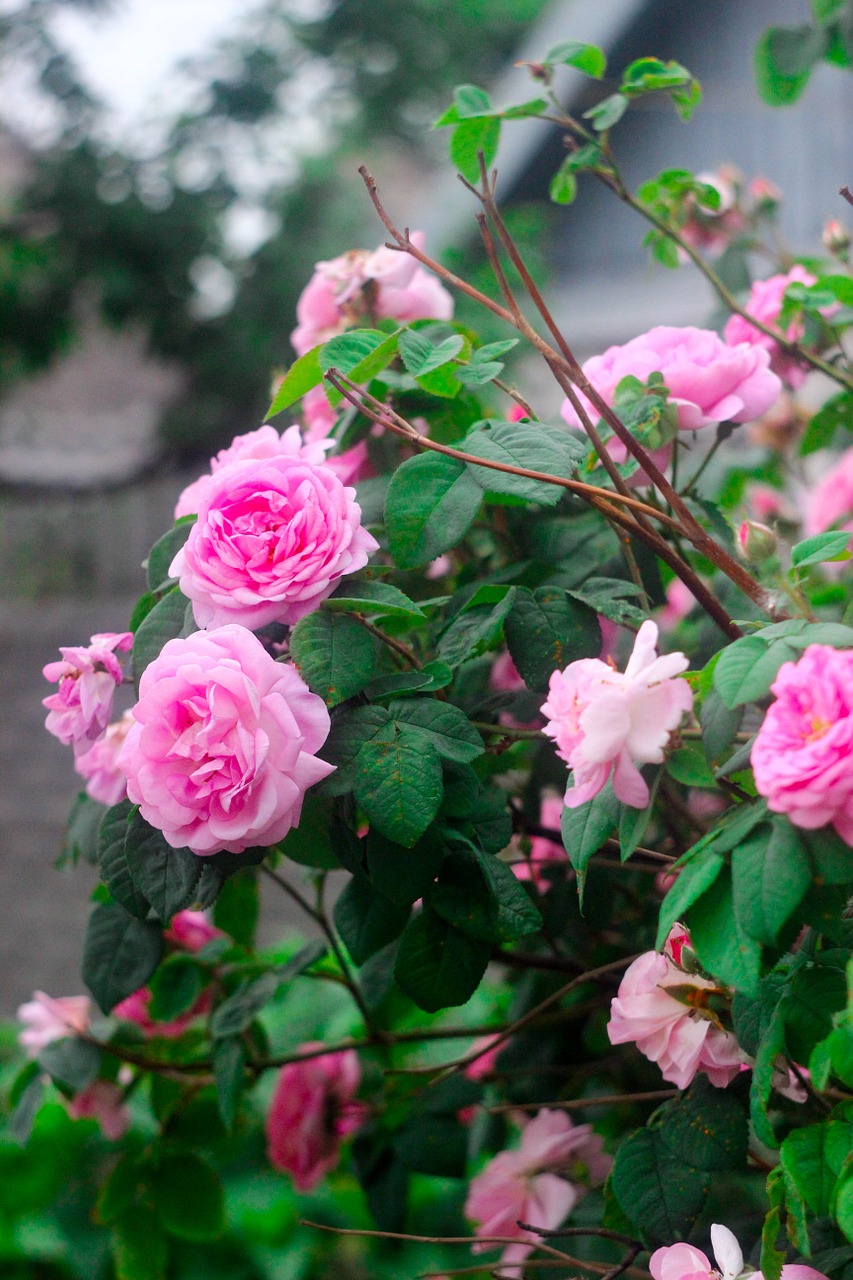
Cooling Down with Summer Rose
There are many herbs that we can use in the summer months to keep our bodies balanced. Rose (Rosa spp.) is an herb that addresses the Heart in a very complex way that only nature can provide. Rosa spp. is both cooling and warming depending on its action.
Below is from the Herbal Academy’s Herbarium rose monograph. It shows the fascinating way nature creates balance and knows what the body needs.
In the mid-1600s, Culpeper (1653) writes about the energetic differences between varying colors of rose: white and red roses are both cooling and drying, with white being the stronger in both regards, despite its uncommon use as an internal remedy. In Culpeper’s era, roses were used in wine to address pain in headaches, pain in the eyes, ears, throat, heart, stomach, and gums as well as a sitz bath for the “fundament.” Dried and powdered roses in water or wine helped “stay the women’s courses” (regulate menstruation, probably).
In Traditional Chinese Medicine (TCM), rose works on the Liver and Spleen channels, is warming and bitter, help to harmonize blood and move Qi, break up stagnation, relieve breast tenderness, menstrual pain, belching, and poor appetite (Yin Yang House, n.d.).
Is rose cooling as in Western herbalism, or is it warming as in TCM? In a blog article (n.d.) about rose, herbalist Kiva Rose interprets the “warming” aspect in TCM through rose’s ability to promote movement of Qi, and the “cooling” aspects in its anti-inflammatory action.
Get the full monograph in The Herbarium Plant Database.
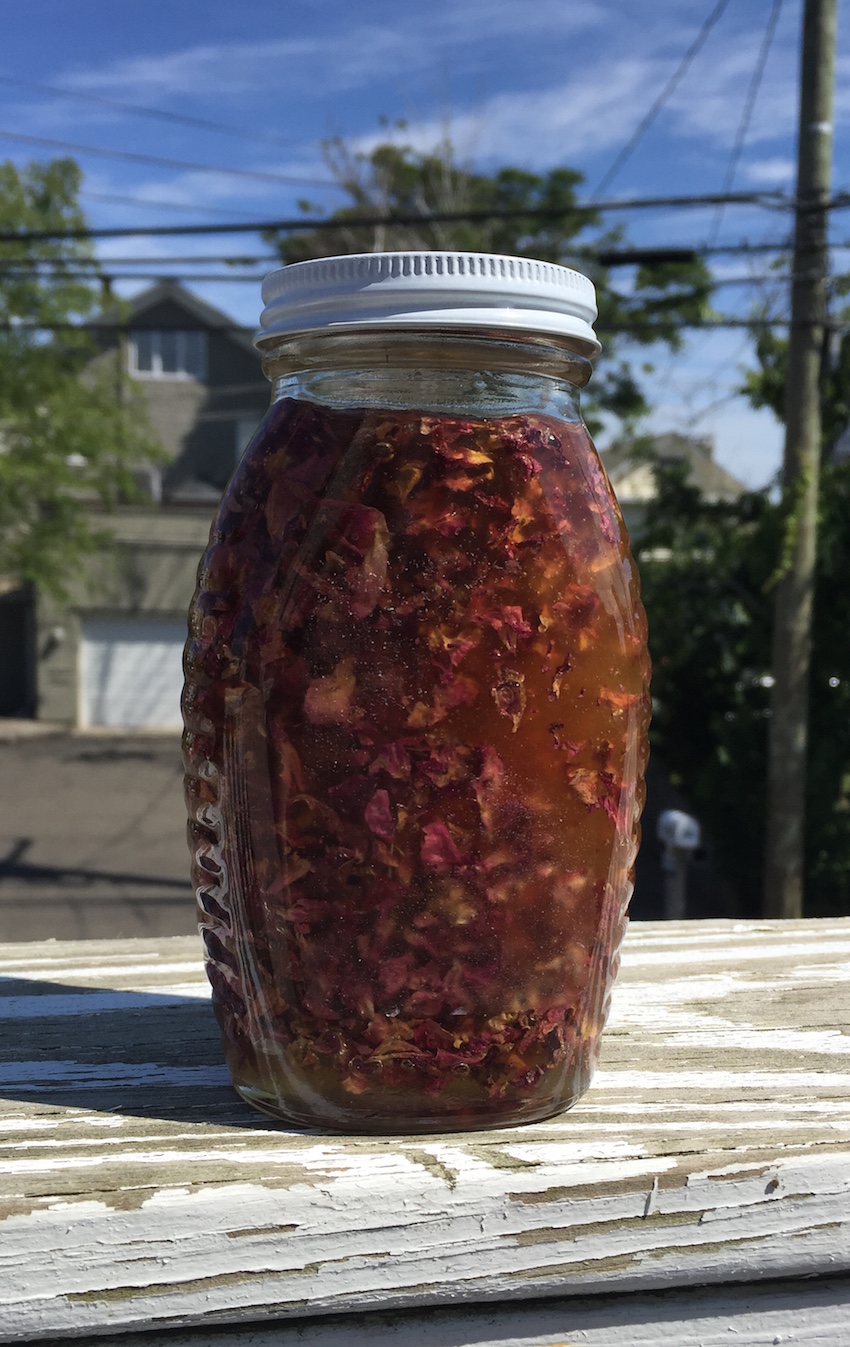
Adding Rose To Your Summer Diet
A rose infused honey is a great way to incorporate this herb into your diet.
Rose Infused Honey
Dried rose petals
Local honey
Vanilla bean (optional)
- Fill any size glass jar ½ way with dried rose petals
- Slice one vanilla bean and add to the jar (optional)
- Add local honey to cover
- Let sit for 1 – 6 weeks, turning daily. (Potency will depend on infusion time)
Do not use rose petals from a florist as they are sprayed and chemically treated.
This honey tastes delicious and it can be used in so many ways. Iced chrysanthemum tea is a nice afternoon drink sweetened with rose infused honey. You can also add 1 cup of brandy to 1 cup of infused honey, let sit for 1 month and enjoy as an elixir.
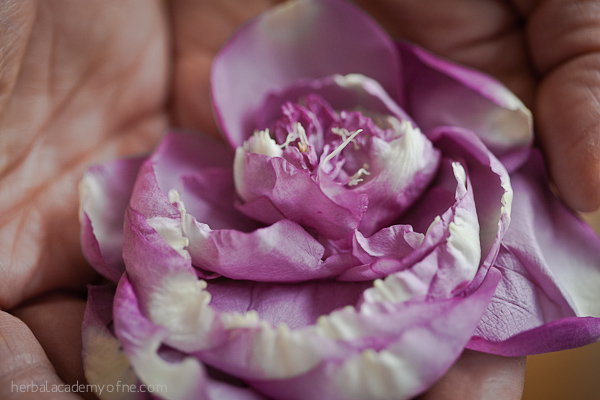
Celebrate your life, live in joy, walk barefoot, and connect with the earth. Enjoy the last bit of summer and nourish your heart.
Get creative and please share your ideas and recipes using rose infused honey. Upload images on Instagram with the hashtag #myherbalstudies.
Ellen Demotses is an aromatherapist and a TCM and Western herbalist. She is a member of the American Botanical Council and the American Herbalists Guild and is developing a natural skincare line.

